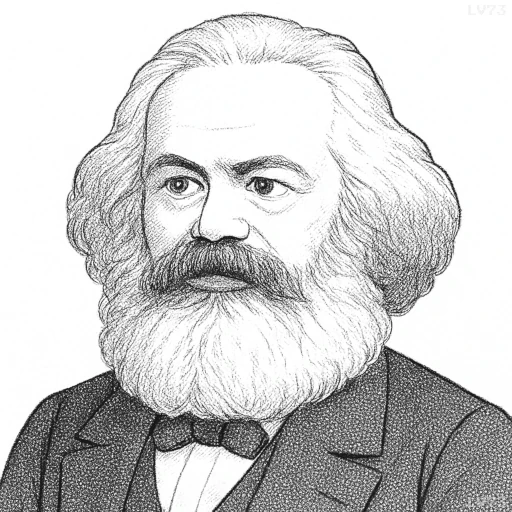“Religion is the impotence of the human mind to deal with occurrences it cannot understand.”

- May 5, 1818 – March 14, 1883
- Born in the Kingdom of Prussia (Germany)
- Philosopher, economist, political thinker
table of contents
Quote
“Religion is the impotence of the human mind to deal with occurrences it cannot understand.”
Explanation
In this quote, Marx critiques religion as a product of human alienation and ignorance. He argues that religion arises as a response to events or phenomena that are beyond human comprehension or control, providing an explanation or comfort in the face of life’s suffering and mysteries. When people encounter situations they cannot fully understand—such as illness, death, injustice, or suffering—they often turn to religion for answers or meaning. Marx suggests that religion is, in this sense, an expression of the human mind’s impotence—its inability to confront the unknown or manage its own fate without relying on external, supernatural explanations. He believed that as societies progress and people come to understand the material, scientific causes of events, religion would eventually lose its hold over them, being replaced by more rational, human-centered approaches.
Historically, Marx viewed religion as a tool of social control used by the ruling classes to maintain their power. He famously referred to religion as the “opium of the people”, implying that it pacified the working class by offering them solace in the form of promises of a better life after death, which in turn kept them from challenging the oppressive conditions they faced in this life. Religion, in this sense, was not just a personal coping mechanism but a means of maintaining the status quo, preventing people from critically analyzing their material conditions or seeking to change the system that oppressed them. Marx believed that social change and human liberation could only occur when people recognized that the real causes of their suffering were economic and social, not divine.
In modern contexts, Marx’s critique of religion remains relevant in discussions about the relationship between faith and social justice. In many societies, religion still provides comfort and meaning for people facing oppression, inequality, or hardship, but it can also be used to justify social hierarchies or to discourage political action. For example, religious teachings may be used to justify inequality in areas like gender, race, or class, and to promote passivity or resignation in the face of social injustices. Marx’s view challenges us to critically examine how ideology, including religion, can obscure the material realities of social and economic systems, and how it can be used to prevent the kind of transformative change that addresses the root causes of suffering.
Would you like to share your impressions or related stories about this quote in the comments section?
